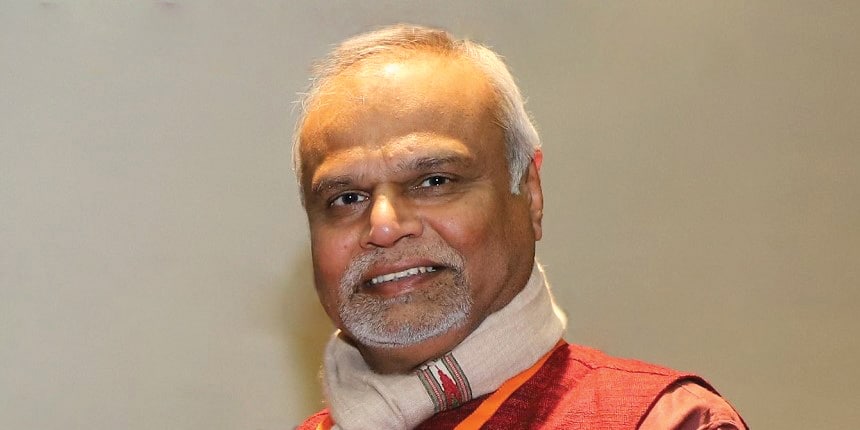Universities rated low lag in research, student support: NAAC Chairperson
Atul Krishna | April 22, 2022 | 01:47 PM IST | 3 mins read
NAAC chairperson Bhushan Patwardhan said that the council is trying to improve the process of accreditation through stakeholder satisfaction surveys.

NEW DELHI: The National Assessment and Accreditation Council’s (NAAC) ratings serve as markers of quality of higher educational institutions. Tied to them are funds, autonomy, and other benefits. Bhushan Patwardhan, the newly-appointed chairperson of the NAAC’s executive committee spoke to Careers360 on how the accreditation process is changing in alignment with the National Education Policy (NEP) 2020.
Q. What changes do you think are needed in the process of accreditation? Have you spotted any areas that need fixing?
A. NAAC will enter its 30th year in 2023. I am in the process of carefully studying current systems and also working on a whitepaper covering the past, present, and future of NAAC. We have already initiated a Stakeholders Satisfaction Survey which will help in understanding expectations and improving the processes.
Q. Has NAAC started any work on implementing the National Education Policy 2020?
A. UGC, NAAC, state governments, universities, higher education institutions, etc., are regularly organising NEP awareness programmes across the country, also through online. NEP related questions are being integrated in the NAAC Manuals in order to prepare all higher education institutions for NEP implementation.
Also Read| ‘Ambedkar himself would be stopped’: New rules stifle NOS scholars’ freedom to study own communities
Q. So far, only a small percentage of institutions have NAAC accreditation. Why is this so? Do you think this changes with NEP?
A. Yes, hopefully, NEP implementation will bring a paradigm shift in the higher education system. Particularly in terms of quality assurance in the form of assessment and accreditation by NAAC. As of March 2022, NAAC has done 14,330 accreditations bringing the total number of higher education institutions accredited to 8,925 which include 395 universities and 8,530 colleges.
Q. What is common to universities that have a low NAAC score?
A. Generally speaking, criteria related to research and innovations, governance, student support, vacant positions, etc., need more attention and intervention.
Q. Recently, NAAC allowed provisional accreditation for institutions. Why was this done?
A. This scheme has been announced to encourage more colleges to get acquainted with the process of accreditation. Schemes like UGC Paramarsh will be helpful in this effort.
Q. NAAC has said that students will be allowed to give input on several parameters of the university. How do you think this will help the accreditation process?
A. The Revised Accreditation Framework (RAF) follows information communication technology driven online accreditation process and NAAC has introduced the student satisfaction survey (SSS) with a reasonable weightage in every manual. This is an important metric in order to assess the quality of any educational institutional offerings.
Also Read| ‘Immediate priority is teacher recruitment, implementing NEP’: DU VC Yogesh Singh
Q. Do the dynamics of accreditation change in the post-pandemic era when the majority of universities had to rely on online or hybrid teaching?
A. NAAC assesses higher education institutions based on the process and its outcomes immaterial of the mode of pedagogical deliveries. All the criteria online and hybrid mode are inbuilt into the evaluation pattern.
Q. NAAC accreditation is used to decide funding for many highly populous state institutions for schemes like RUSA. Do you think this is fair?
A. Yes. Better performing institutes are incentivized through this mechanism. This also builds a healthy competitive environment that results in quality improvement. Higher education institutions also have a societal responsibility, therefore accreditation as a quality assurance mechanism helps to strengthen provisions of teaching-learning, infrastructure, research, etc.
Accreditation as a quality assurance mechanism helps to strengthen provisions of teaching-learning, infrastructure, research, etc.
Follow us for the latest education news on colleges and universities, admission, courses, exams, research, education policies, study abroad and more..
To get in touch, write to us at news@careers360.com.